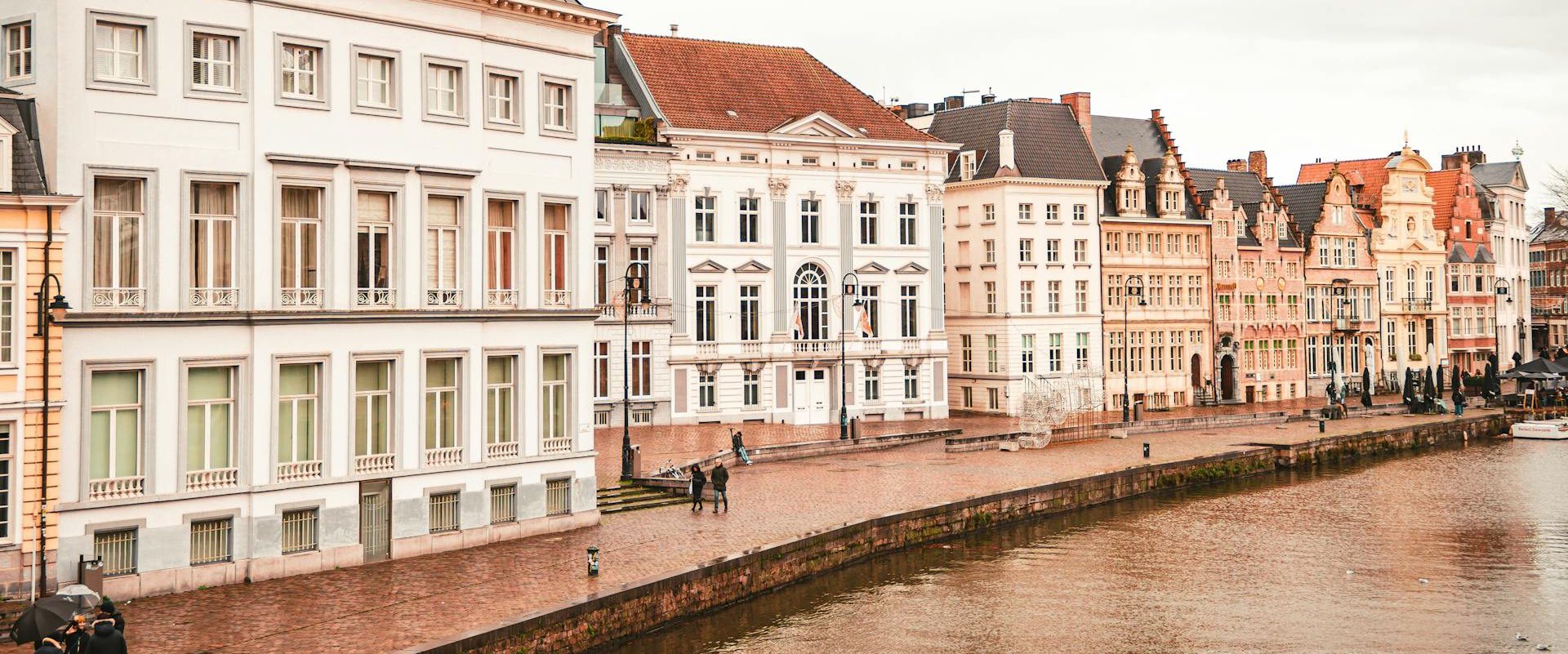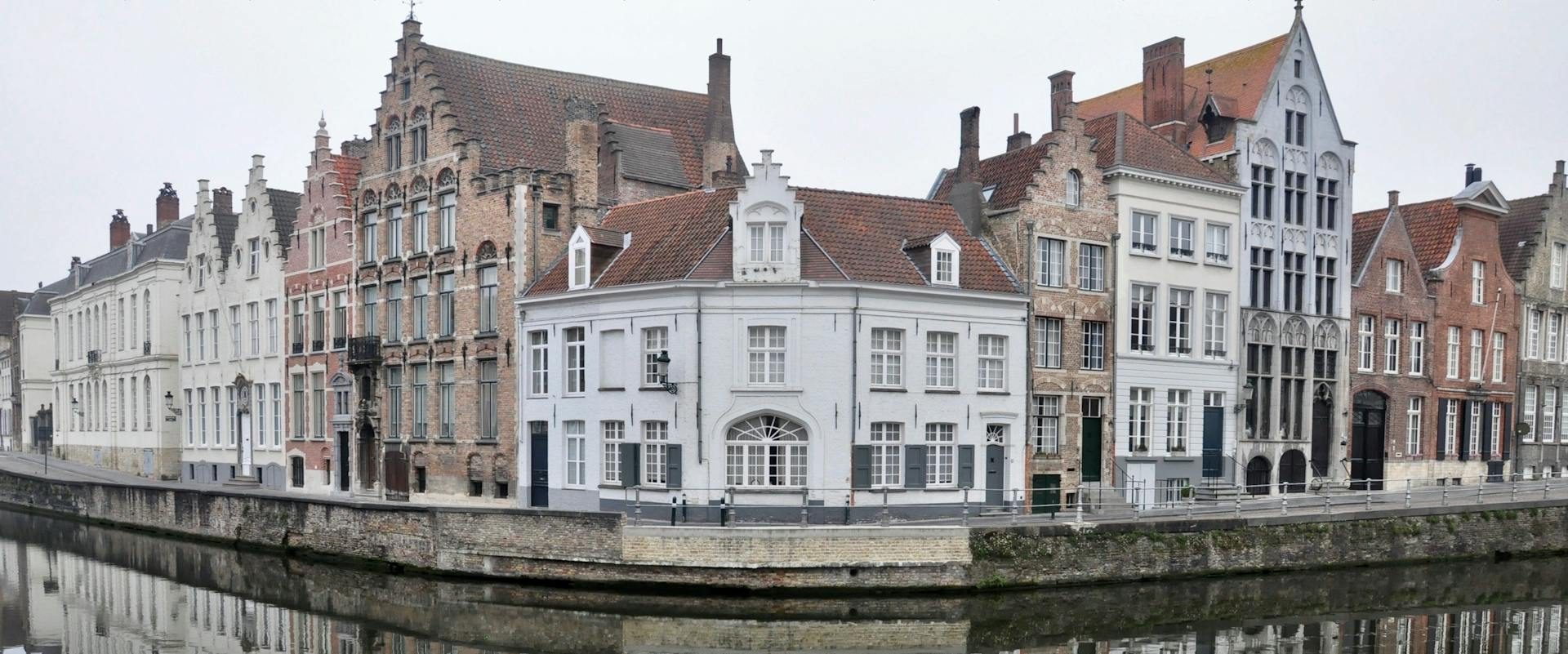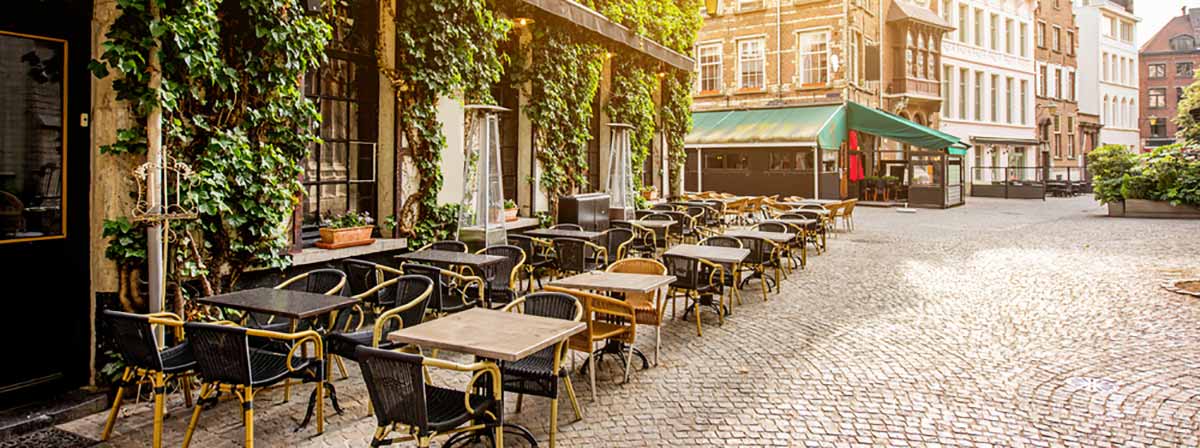
Looking for the cheapest place to live in Belgium? Moving internationally is hard enough considering having to start all over again, often far away from family and friends, let alone move to a place where you might have to deal with different pricing for better or worse. To understand the difference between currencies, affording housing and how to manage your expenses in your new endeavour. We want to share a bit of one of our clients’ stories to let you see that even if it seems overwhelming, it doesn’t mean you can’t find a way through it.
When Orla knew she was supposed to change her whole life by moving from the UK to Belgium, she felt butterflies all over her stomach. Let’s be honest: as much as a new adventure can sound amusing and Belgium as appealing for a new destination as it is, changing out of sudden is beyond doubt a challenge for many. She was filled with preoccupation, from finding a welcoming and wallet-friendly place to how she could handle all the red tape and carry everything that made her herself with her home in Belgium.
Holding a pencil and staring at a blank page, Orla felt her heart pounding and her mind like a puzzle as she shuffled through thoughts, trying to find where to start. The reasons to move revolved around a scholarship, so half of it was solved because the institution she received the studies funding provided the international travel costs, a living allowance of 1150 €/month, an arrival allowance, tuition, and return fees of 700 €. “But, where am I going to live? How am I going to carry all my things?”. Read the following paragraphs to know the answers to her questions.
When searching and planning for affordable living options, three cities caught her attention: Ghent, Bruges, and Kortrijk. These cities offered proximity to the university, plus they lived with young people everywhere.
Ghent: This city is recognised for its youthful vibe, mainly due to its status as a university city. It combines beautiful architecture and a lively atmosphere, appealing to young expats and students. The cost of living in Ghent averages around 1,458 €/month.
Bruges: known as the “northern Venice,” is famed for its medieval canals and cobblestone streets. Despite its historical charm, it’s not just a tourist destination; it’s also a place where you can find modern amenities and a lively local community. Living in Bruges is slightly cheaper than Ghent, with an average cost of around 1.297 €/month.
Kortrijk: while smaller, offers an appealing mix of low living costs and quality life, with an average price of around 1,180 €/month. It’s an innovative city focusing on design and creativity, making it an exciting choice for those looking to immerse themselves in the Belgian creative scene.
The option closer to what she needed was Kortrijk, but unfortunately, it was not where the university was. But these cities are close enough to each other, making travel easy. They also offer distinct experiences and the rental prices are pretty similar, going from 300 euros to 400 euros. While maintaining a lower living cost, their atmosphere seemed better than those of bigger Belgian cities since their slower pace would give her the perfect environment to study. This makes them excellent options for students or young professionals looking to experience Belgium.
Managing her finances became crucial to the transition when Orla jumped on her pursuit from the UK to Belgium. Adapting from pounds to euros meant understanding the exchange rates and budgeting accordingly. Firstly, Orla had to adapt her consumption behaviour from before. She tracked the pound-to-euro exchange rate daily, using financial apps that offered real-time updates and alerts, ensuring she converted her funds when rates were most favourable. She also opened a local Belgian bank account to avoid substantial withdrawal fees and gain access to euro-denominated services. She maximised her resources by setting a monthly budget based on her scholarship allowance and local living costs. Moreover, Orla explored student discounts and local deals, stretching her euros further. While initially scary, she started to manage part of her new Belgian life, blending financial savvy with cultural immersion.
Living cheaply doesn’t end with rent. Belgium offers second-hand stores and local deals that can make living expenses more manageable. From fresh produce in local markets to affordable Belgian fashion in thrift shops, the country has opportunities to save without sacrificing quality of life. Here are a few more tips to help you save money in Belgian lands.
A crucial step of her moving process was selecting a company aligned with her needs and budget. This is where VanOne International Movers came into play. Known as the number 1 company in the UK for international relocations, She found transparency, reliability, and affordable prices, making her move to the cheapest place to live in Belgium smooth and stress-free. So, are you considering moving to the cheapest place to live in Belgium? Let VanOne International Movers make your dream a reality. With our expertise and dedication, we’ll ensure your belongings arrive safely and on time. Start your Belgian adventure with us – contact VanOne today and take the first step towards a budget-friendly Belgian experience!
 Navigating the Belgian Language Landscape: A Guide for Expats
Navigating the Belgian Language Landscape: A Guide for ExpatsNavigating the Belgian Language Landscape: A Guide for Expats Belgium's rich tapestry of culture, history, and gastronomy is…
 Discovering Unique Places to Live in Belgium: Finest and Popular Stops
Discovering Unique Places to Live in Belgium: Finest and Popular StopsDiscovering Unique Places to Live in Belgium: Finest and Popular Stops Living in Belgium as a newcomer means…
 The Joys and Challenges of Living in Brussels with Family
The Joys and Challenges of Living in Brussels with FamilyThe Joys and Challenges of Living in Brussels with Family With a multicultural setting, a wide variety of…
 British Expats in Belgium – basic information about living in Belgium after you relocation
British Expats in Belgium – basic information about living in Belgium after you relocationBritish Expats in Belgium – basic information about living in Belgium after you relocation When you move…